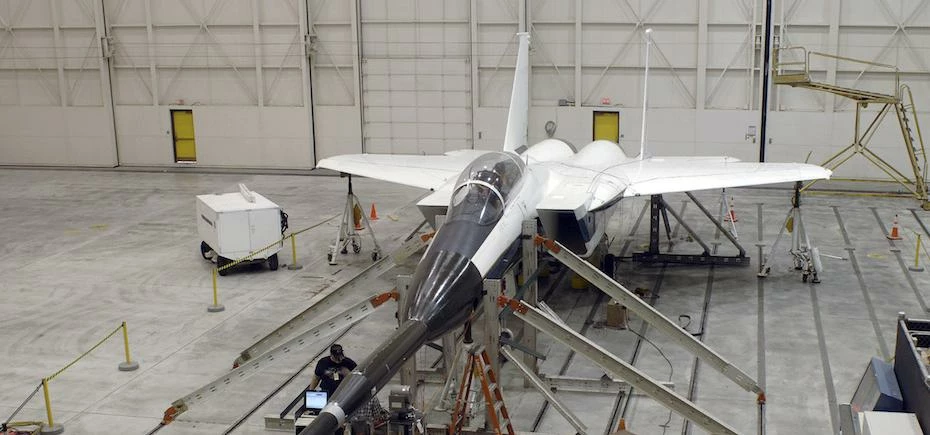
UK-wide collaboration to deliver ‘Intelligent Tooling’ project
The Centre for Process Innovation (CPI) is part of a UK-wide collaboration that aims to develop novel sensing technologies for the real time monitoring of machined metal parts.
Titled ‘Intelligent Tooling’, the two year Innovate UK project is developing embedded sensors and electronic components within high value machining applications in manufacturing sectors including aerospace, rail, automotive, marine and energy.
The collaboration combines expertise in machine tooling right across the UK supply chain, bringing together end users and partners to integrate specialist leading research, technology and industrial scale manufacturing.
The partners involved are; CPI, BAE Systems, Element Six, The Advanced Manufacturing Research Centre, Advanced Manufacturing Ltd, Printed Electronics Limited, The National Physical Laboratory and DMG Mori Seiki.
The sensing of critical process variables, such as temperature, force, acoustic emission and vibration, applied close to the cutting surface aims to create a step change in the capacity and productivity of machining systems. A reduction in cycle times, human intervention and process variation are all achievable through the introduction of embedded sensing.
Small variation in input parameters, such as material and tooling properties, are often only observed in the final inspection of products. Within the high value manufacturing sector, this often leads to conservative parameters or conservative tool lives being enforced.
The ability to obtain data on the machining process at the time of cutting, at a lower cost and higher resolution than before allows these small changes to be diagnosed and managed within the process, leading to better tool utilisation and potential improved processing times.
The ‘Intelligent Tooling’ project will develop a prototype tooling insert with embedded sensing capability, designed to withstand the harsh environmental conditions involved in metal machining. Further developmental focus will be to upscale the prototype to derive the data needed for commercial market adoption.
The project has the capacity to deliver increased productivity, capability and tool life, improved capability for product design and performance and reduced operator intervention.
Another key aspect of the project is the engagement of industry end users and SMEs which are keen to exploit the machining benefits that printed sensing can provide.
Mark Wilson, Principal Technologist, Advanced Manufacturing at BAE Systems, said: “Developments like this one are aiming to take machining on to the next level by getting to the heart of the cutting process and then being able to adapt the cutting parameters accordingly – BAE Systems prides itself on being at the forefront of machining technology and this development will keep us at the forefront of its understanding”
Dr Peter Tune, Business Manager at CPI who is leading the project added: “CPI’s role in the project is to design and print the electronic sensors, providing expertise in the integration of conventional and printable electronics. Printing will be used where its flexible properties provide great impact. Here it is used to apply sensing functionality close to the cutting edge of the tooling inserts. Conventional electronics will be integrated to drive the sensors and transfer data to the control systems.
“Printed sensing is an interesting area as the flexible nature of the technology allows for robust, lightweight sensors to be incorporated into curved structural designs and to be printed in bespoke configurations in high volumes and at low cost. This project represents a tough challenge for printed sensing and the learning will be directly transferrable to other embedded sensor applications where there are similar challenges.”
Looking to promote your product/service to SME businesses in your region? Find out how Bdaily can help →
Enjoy the read? Get Bdaily delivered.
Sign up to receive our popular morning National email for free.








 Raising the bar to boost North East growth
Raising the bar to boost North East growth
 Navigating the messy middle of business growth
Navigating the messy middle of business growth
 We must make it easier to hire young people
We must make it easier to hire young people
 Why community-based care is key to NHS' future
Why community-based care is key to NHS' future
 Culture, confidence and creativity in the North East
Culture, confidence and creativity in the North East
 Putting in the groundwork to boost skills
Putting in the groundwork to boost skills
 £100,000 milestone drives forward STEM work
£100,000 milestone drives forward STEM work
 Restoring confidence for the economic road ahead
Restoring confidence for the economic road ahead
 Ready to scale? Buy-and-build offers opportunity
Ready to scale? Buy-and-build offers opportunity
 When will our regional economy grow?
When will our regional economy grow?
 Creating a thriving North East construction sector
Creating a thriving North East construction sector
 Why investors are still backing the North East
Why investors are still backing the North East